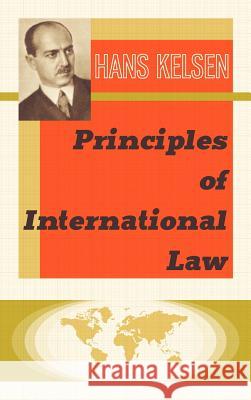Principles of International Law » książka
Principles of International Law
ISBN-13: 9781584773252 / Angielski / Twarda / 2012 / 480 str.
Principles of International Law
ISBN-13: 9781584773252 / Angielski / Twarda / 2012 / 480 str.
(netto: 309,49 VAT: 5%)
Najniższa cena z 30 dni: 278,83
ok. 16-18 dni roboczych.
Darmowa dostawa!
Arguably his most important work, Principles of International Law was published after Kelsens retirement from the University of California at Berkeley in 1952. It is an important synthesis of Kelsens earlier work on international law and jurisprudence. Any contribution by Professor Kelsen to international law is always welcome. This certainly applies to the book under review. It represents an attempt-which must be regarded as wholly successful-to apply to international law, in an introductory text-book not necessarily limited to specialists, many of Professor Kelsens basic doctrines in the field of jurisprudence. In preparing this book the author has drawn on many of his previous writings on international law, but he has avoided the danger of putting before the reader a mere compilation of fragments. The very arrangement of the book is stimulating in its boldness and unorthodoxy. ( . . . ) [It is] a model of precision and clarity and . . . a stimulus to thought. If for no other reason, this Introduction to International Law is an outstanding and fully successful attempt-of which there are but few-to present the entirety of the international law of peace within the framework of a jurisprudential system. --Hersch Lauterpacht, British Yearbook of International Law 29 (1952) 509, 513Possibly the most influential jurisprudent of the twentieth century, HANS KELSEN [1881-1973] was legal adviser to Austrias last emperor and its first republican government, the founder and permanent advisor of the Supreme Constitutional Court of Austria, and the author of Austrias Constitution, which was enacted in 1920, abolished during the Anschluss, and restored in 1945. He was the author of more than forty books on law and legal philosophy. Active as a teacher in Europe and the United States, he was Dean of the Law Faculty of the University of Vienna and taught at the universities of Cologne and Prague, the Institute of International Studies in Geneva, Harvard, Wellesley, the University of California at Berkeley, and the Naval War College.











